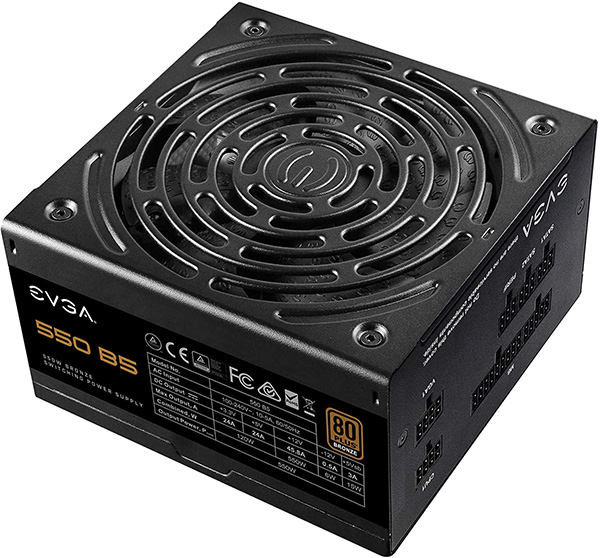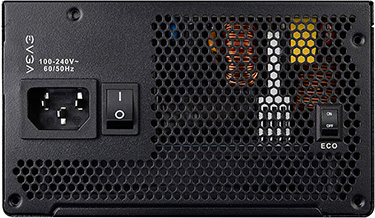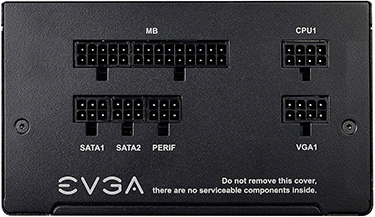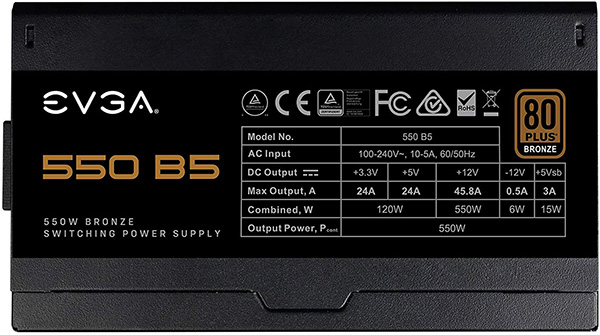Introduction
Most PSU vendors tend to seed their best supplies to the press for technical evaluation and review. These tend to offer performance that's way better than the minimum required by the ATX spec, yet it stands to reason that manufacturers sell more 80 PLUS Bronze supplies than 80 PLUS Titanium or Platinum.
Catering for the value market and system builders alike, even entry-level PSUs tend to be performance overachievers. It is with this thought that EVGA sent us its 550 B5 (550W) supply in for review.
Also available in 650W, 750W and 850W models, key selling points include a 150mm-deep chassis, fully-modular cabling, 80 PLUS Bronze efficiency certification, an eco fan mode that switches it off at low loads, and a DC-to-DC design for high(er) efficiency on the minor 3.3V and 5V rails. In short, pretty much what anyone would look for in a budget PSU. The new B5 appears to have much in common with the EVGA G3 PSUs in appearance and specs.
Trouble is, priced at £80, it's not particularly cheap, but that's a problem afflicting the whole industry and not just EVGA. Build quality is robust - there are no squeaks or rattles anywhere, there's lots of space for the cables, and a high-quality 135mm FDB fan bodes well for keeping noise in check. Many manufacturers cheapen the fan on cheaper models, not so for EVGA.
As this is the most basic supply in the B5 line-up, cabling is understandably parsimonious. There's no second 4+4-pin CPU connector as on 750W and 850W models, PCIe cables are limited to two 6+2-pin, ostensibly for a single high-powered card (850W has six!), and there's six SATA on top. Nevertheless, the cables' quality and lengths are both decent.
We always find it strange when companies have an Eco switch on the PSU itself; surely if it's a feature worth talking about it ought to be on at all times? Should you wish to bypass it, however, the option is there, but during our testing we found that it remained off until around 40 percent of full load. That means there will be no PSU fan noise when your system is idling.
A single rail is the way to go for most these days. The feeling of the 550W and 650W models being inferior cousins of the top two capacities remains as we look into the specifications further. The two lower-capacity models only use a Japanese capacitor for the main part, whereas the other two have them everywhere. It also helps explain why the 750/850W models have an ambient temperature rating of 50°C, which usually intimates good engineering, whilst the 550/650W don't.
Focussing on this point, the 750W model costs an extra £20. Sure, that's a 25 percent premium over 550W, but examined within the context of a mid-range build, we'd opt for that instead. Inside, EVGA looks to have teamed up with Superflower who also OEMs for the aforementioned G3 PSUs.
Backed by a five-year warranty, this is not one of the supplies whose warranty can be further extended through registration. Let's see how it performs before passing final judgement.













